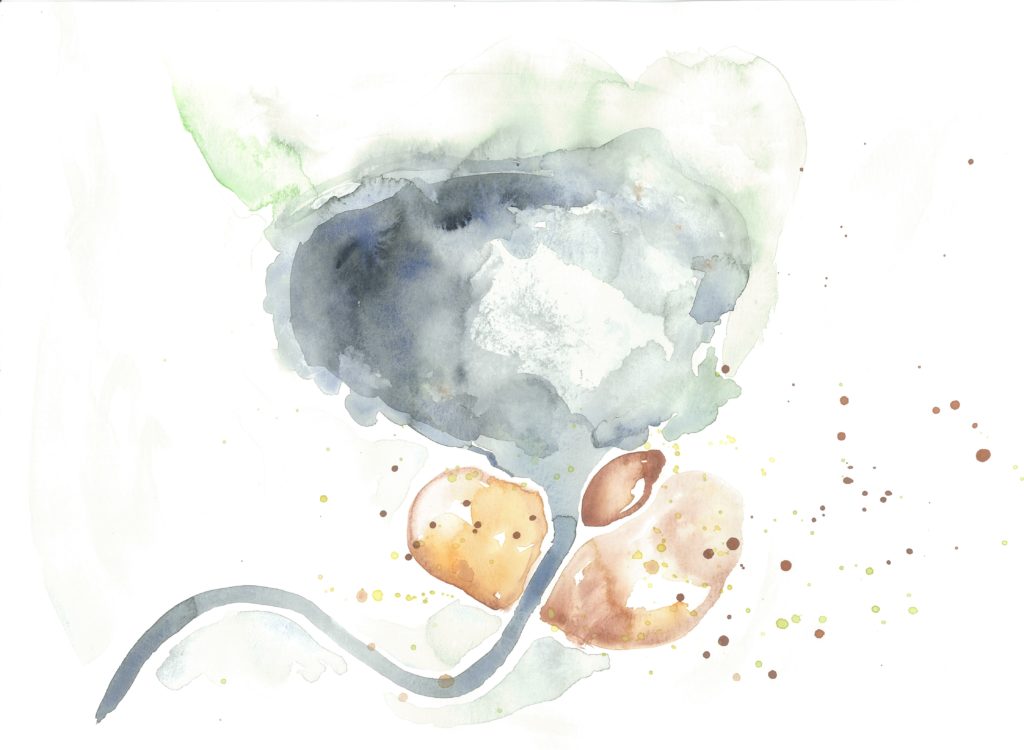WHAT IS OXIDATIVE STRESS?
Oxidative stress has a well-established role in the cause of explained and unexplained infertility. Oxidative stress is an imbalance between reactive oxygen species (ROS) and protective antioxidants, and this influences the reproductive health of men and women. Reactive oxygen species (ROS), in excess, can cause disruption to normal cellular function and can damage cells (in particular mitochondria, & DNA of the sperm and egg) and tissues.
Reactive Oxygen Species (ROS) are increased by the consumption of sugars and oxidized vegetable oils, smoking, alcohol, exposure to environmental toxins, high or chronic emotional stress, circadian rhythm dysregulation (poor sleep), lack of exercise, infections, and a lack of antioxidant intake.
HOW DOES OXIDATIVE STRESS IMPACT FERTILITY?
Oxidative stress influences oocytes (eggs), spermatozoa (sperm), embryos and their environments. More specifically, the reactive oxidative species (ROS) affect microenvironments associated with the fluid surrounding the egg, fallopian tube fluid, and abdominal fluid and have a direct bearing on egg quality (mitochondria & DNA), sperm-egg interaction, sperm-mediated egg activation, implantation, and early embryo development. Oxidative stress also impacts early embryo development and implantation.
MALE INFERTILITY
Research on male factor infertility demonstrates that sperm are vulnerable to reactive oxidative species (ROS) which can result in decreased motility (due to loss of mitochondria ATP production), decreased viability, increased mid-piece morphology, and reduced fertilization (sperm capacitation and acrosome reaction). Another study reported that levels of antioxidants in seminal plasma from infertile men were significantly lower than levels in fertile controls.
FEMALE INFERTILITY
Excess reactive oxidative species (ROS) in the follicular fluid can directly damage the egg. The DNA of the egg can also be damaged leading to inability or defective fertilization. Even when fertilization is achieved, oxidative stress-induced damage may cause poor uterine lining function and luteal phase hormonal production resulting in implantation failure, poor embryo development, and miscarriage.
In Polycystic Ovary Syndrome (PCOS) oxidative stress has been shown to be involved in mediating insulin resistance and androgen hormone increases.
With Endometriosis, the inflammation involved compounds the production of reactive oxidative species (ROS). Oxidative stress increases lesions and adhesions via the production of endothelial growth factor which promotes angiogenesis (blood vessel formation) to the Endometriosis. One study even showed a difference in how the gene expression of Endometriosis tissue metabolizes glutathione.
Research on the abdominal fluid (which surrounds the ovaries) of both fertile and infertile women demonstrated that higher levels of reactive oxidative species (ROS) were present in the fluid taken from patients with unexplained infertility.
GLUTATHIONE & FERTILITY
Glutathione is the king/queen of all antioxidants, the master detoxifier and maestro of the immune system. It is one of the major endogenous antioxidants directly involved in the reduction of reactive oxygen species (ROS), as well as maintaining the levels of exogenous antioxidants such as vitamins C and E [read more about glutathiones many functions here].
Glutathione can improve fertility and reduce oxidative stress by fighting the formation of damaging reactive oxidative species (ROS) in the reproductive system.
The body produces its own glutathione but it is depleted by poor diet, pollution, toxins, medications, stress, trauma, aging, infections, and radiation.
A deficiency of glutathione leads to increased oxidative stress and the resulting increase in reactive oxidative species (ROS). As stated, this causes issues with sperm and egg quality, fertilization, implantation, and embryo development.
Glutathione may also have a positive impact on autoimmune issues. Glutathione is involved in immune function and regulating the genes that cause chronic inflammation. This may be helpful for those who are experiencing immunological miscarriages or if the body is rejecting one’s mate’s sperm.
CONCLUSIONS
If you are experiencing infertility, first and foremost it is important to address the causes of oxidative stress and glutathione depletion. In addition, you may want to consider glutathione injection therapy to ensure that your levels are optimized.
Click here for more information about the Micronutrient Injection Therapies offered at Yinstill, or contact us to book an appointment.
REFERENCE ARTICLES
1. What really causes oxidative damage? by Chris Kresser [https://kresserinstitute.com/what-really-causes-oxidative-damage]
2. Review on the role of glutathione on oxidative stress and infertility, by Oyewopo et al [https://www.ncbi.nlm.nih.gov/pmc/articles/PMC5844662/#r39]
